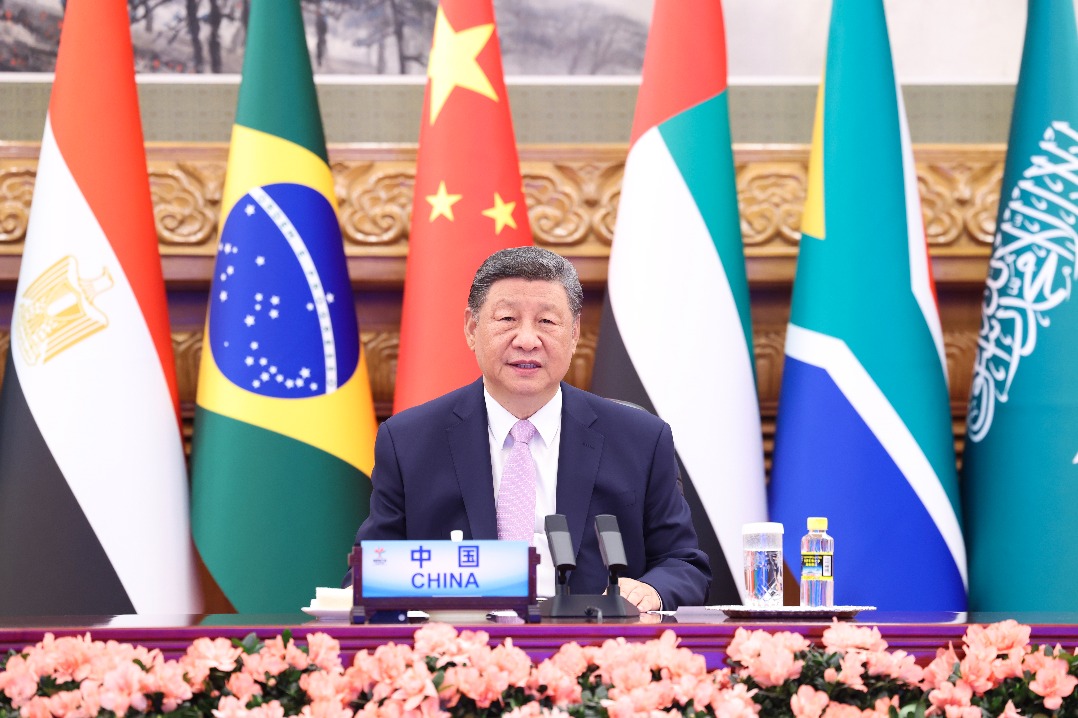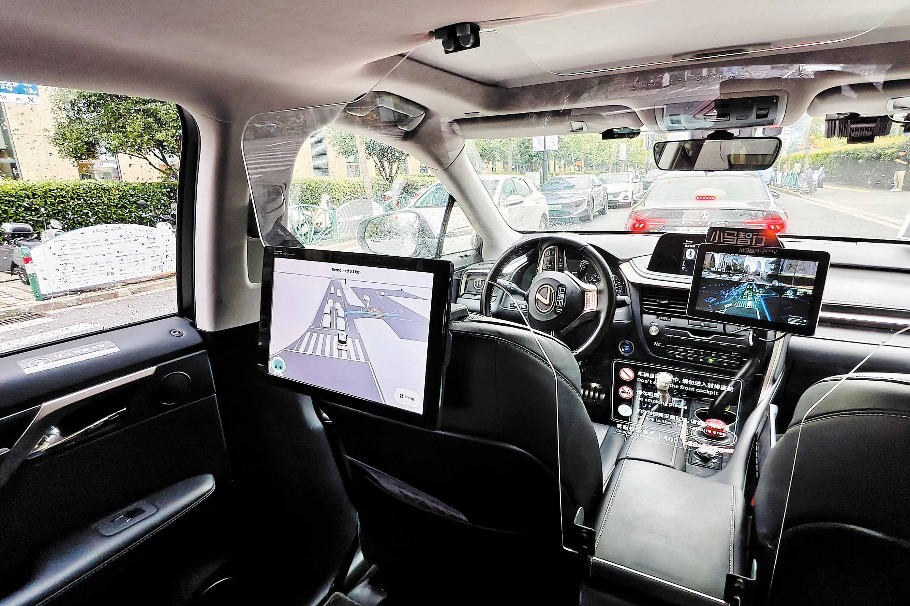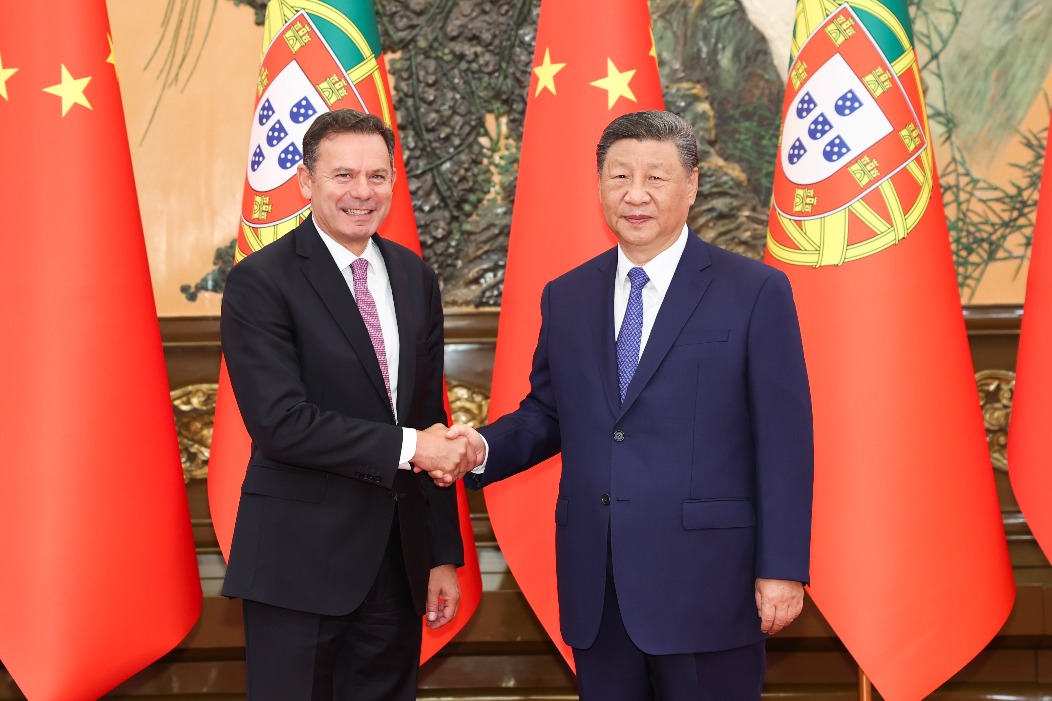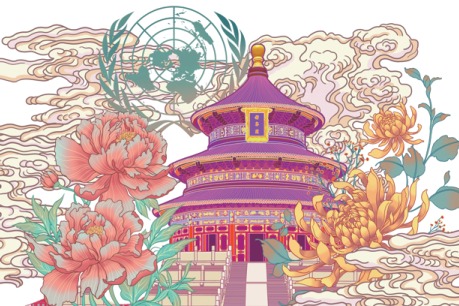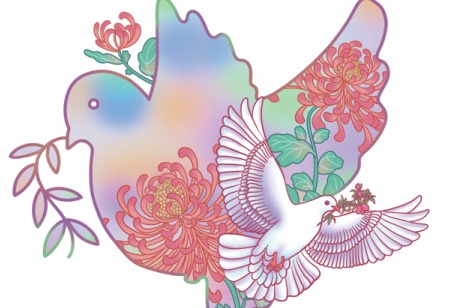China and Africa jointly advance modernization

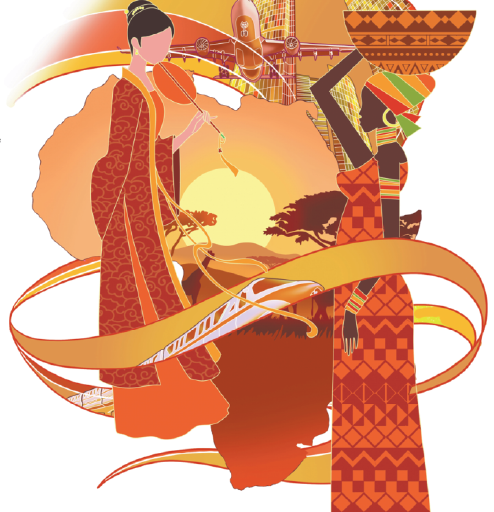
Considering that China and Africa account for about one-third of the global population, without their "modernization, there will be no global modernization", President Xi Jinping said in his keynote address at the opening ceremony of the 2024 Summit of the Forum on China-Africa Cooperation in Beijing this month. Nobody in their right mind would disagree with President Xi, who also stressed that "the friendship between China and Africa transcends time and space, surmounts mountains and oceans, and passes down through generations".
Sino-African relations date back to the days when Chinese admiral Zheng He sailed his fleet between China and the eastern coast of Africa, including present-day Kenya and Tanzania, from 1405 to 1433. But unlike the West's maritime expansion between the late 15th century and 17th century, China did not conquer or occupy or colonize any country in Africa. The West's colonization culminated in the mid-19th century in Europe's nefarious "Rape of Africa", also known as the "Scramble for Africa", driven by the "Second Industrial Revolution", after which only Liberia (founded by former African slaves from the United States) and Ethiopia, evaded colonial occupation (although Ethiopia, then still known as Abyssinia, was invaded by fascist Italy in the 1930s).
Following the founding of the People's Republic in 1949, and because of China's principled support for the African people's struggle to gain independence from European colonial powers, relations between New China and Africa gradually strengthened.
One of the historic highlights of China's determination to support African nations' independence and development was the 1,860-kilometer Uhuru Railway ("uhuru" means "freedom" in Swahili) between Tanzania and Zambia (hence, it is also known as TAZARA Railway), a turnkey project financed by China and involving scores of Chinese engineers and workers between 1970 and 1975, much to the derision of the West that badmouthed it as a "bamboo railway".The railway remains an enduring symbol of cooperation and solidarity between China and Africa — and elsewhere in the Global South.
President Xi also said in his speech at the Great Hall of the People that the founding of the FOCAC in 2000 was a milestone in the history of China-Africa relations, stressing that "thanks to nearly 70 years of tireless efforts from both sides, the China-Africa relationship is now at its best in history". He also proposed that bilateral ties between China and African countries be elevated to the level of strategic relations, "and that the overall characterization of China-Africa relations be elevated to an all-weather China-Africa community with a shared future for the new era".
Considering that the 2.8 billion people of China and Africa account for more than one third of the global population, Xi pledged that China will work with Africa over the next three years to take 10 partnership actions for modernization in order to deepen China-Africa cooperation and spearhead the Global South's modernization drive.
Having read intensively about the development of Sino-African relations since my university days back in the 1970s, I am convinced that there are philosophical similarities between China and Africa that facilitate mutual understanding between the two sides. China's Confucian concept of ren, that is, the importance of relationships, benevolence, kind-heartedness and humanity, and Africa's concept of ubuntu, that is, the importance of relationships, compassion and individuals' well-being depending on the well-being of others are strikingly similar in their approach toward humanity, and what it is supposed to be all about.
Both concepts emphasize the central value of community, interconnectedness, social responsibility, moral integrity, and empathy. I find ubuntu's idea that "I am because we are" particularly in line with my own worldview. I regard both concepts as unifying factors in the China-Africa relationship.
Also, the growing impact of "wokeism "on Western politics will further alienate the West from the Global South — including China and Africa.
The FOCAC Summit in Beijing also had a Macao connection, considering that six of the participating countries-Angola, Mozambique, Guinea-Bissau, Equatorial Guinea, S?o Tomé and Príncipe and Cape Verde — are members of the 10-member Macao-based Forum for Economic and Trade Co-operation between China and Portuguese-speaking countries (Forum Macao). Africa's six countries with Portuguese as their official language have a combined population of 76 million, with 37 million and 34 million of them being in Angola and Mozambique, respectively. The six countries account for about one quarter of the 290 million inhabitants of the world's nine Portuguese-speaking countries.
While China is Africa's top trading partner, Angola is one of China's main business partners in Africa. I believe that Forum Macao should play a more prominent role in fostering economic, commercial and even cultural relations between China and Africa's six Portuguese-speaking countries, by, among other things, organizing more two-way business-promotion visits and holding more training courses in the Macao Special Administrative Region or other places.
While Macao is deeply rooted in Chinese culture, it is also a multicultural society open to foreigners (like myself ), and I believe that our public and private universities are able to offer the right education environment for African students to study and even pursue their academic careers in the SAR.
Macao — including the Guangdong-Macao In-depth Cooperation Zone — should also try to attract more scholars, investors, business people and creative talents from Africa's Portuguese-speaking countries to work here. That would benefit both Africa and China, and further elevate Macao's status as a platform for consolidating relations between China and Portuguese-speaking countries.
The author is director of Macau Post Daily.
The views don't necessarily reflect those of China Daily.
If you have a specific expertise, or would like to share your thought about our stories, then send us your writings at opinion@chinadaily.com.cn, and comment@chinadaily.com.cn.


















